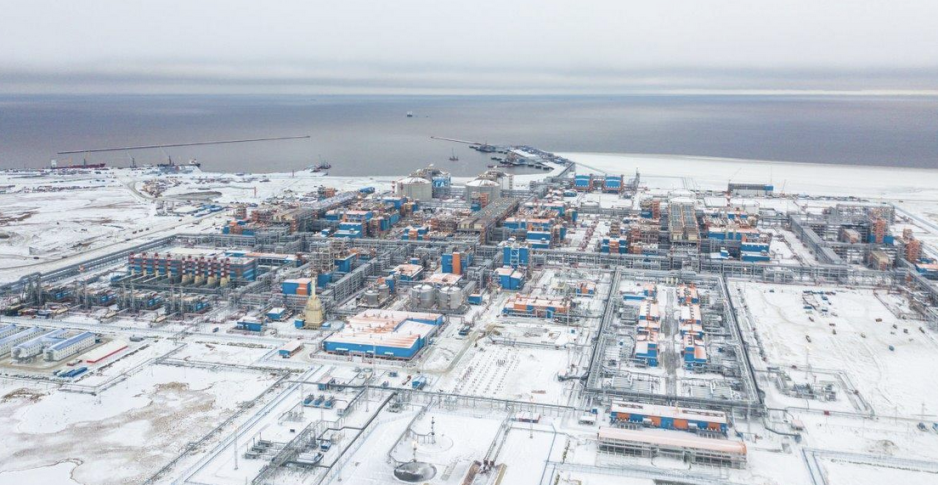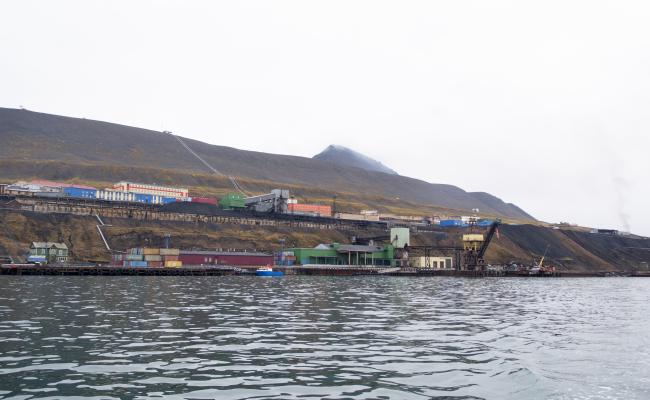Japan’s Mitsui Announces $700m Write-Down for Arctic LNG 2, Future Involvement Unclear

Novatek's Yamal LNG facility in the Russian Arctic. (Source: Courtesy of Novatek)
Novatek’s Japanese development partner Mitsui revealed that it took a loss and write-off related to its investments in the Russian Arctic. According to the CEO the company remains undecided if or in what form it will continue being involved in the project.
The prospects for an on-time completion of Novatek’s $21bn Arctic LNG 2 project continue to weaken in light of sanctions and the general worsening of the business environment in Russia.
After France’s Total, which announced a $4.1bn impairment last week, Mitsui also decided to take a write-off related to its 10 percent stake in Novatek’s Arctic LNG 2 project.
The company reported that it had recorded a loss of $162m related to its investment in Novatek’s flagship project Arctic LNG 2 as a result of higher loan and guarantee obligations stemming from worsening Russian credit rating.
Affecting business
In addition the Japanese company reduced the value of its stake in Arctic LNG 2 and Sakhalin 2 in Russia’s Far East by around $700m.
Total and Mitsui are minority partners in the company’s projects to develop natural gas resources on the Yamal and Gydan peninsula in the Russia Arctic. Novatek is Russia’s largest producer of liquefied natural gas (LNG) operating and developing the Yamal LNG and Arctic LNG 2 projects.
During the presentation of its annual financial results Mitsui announced how the changing business environment in Russia and Japanese sanctions against Russia are affecting its business.
While Mitsui aims to remain involved in the Sakhalin 2 project the company’s CEO Kenichi Hori said that the situation related to Arctic LNG 2 would likely evolve.
“There is a good chance that the situation in Arctic 2 will change, but that is not the case at this stage. If that occurs, we’ll make an announcement after evaluating the situation and confirming what needs to be confirmed among the partners.”
Current Japanese sanctions against Russia only apply to future investments in the sector, not to existing projects like Arctic LNG 2.
Energy security concerns
Unlike Europe which aims to continuously reduce its dependence on Russian oil and natural gas in the months and years to come, Japan will likely continue to rely on Russian energy to meet its energy demand. Russia already accounts for nearly 10 percent of Japan’s LNG imports, primarily from the Sakhalin 2 project.
“Uncertainty is rising, and the geopolitical risk is unpredictable. We will keep the need for energy security in mind,” explained Hori at a press conference. “I would like to cooperate with related parties in the LNG business in Russia while being aware of the important role of stable energy supply.”
Japan’s involvement in the project extends beyond investments by public companies. The country’s bank for International Cooperation provided loans in the amount of up to $1.8bn to the Arctic LNG 2 consortium.
Highlighting regional energy security issues, Japanese officials expressed concern that if the bank or Mitsui were to exit the project, their stakes would quickly be picked up by China, which already holds a 20 percent stake in Arctic LNG 2 and its sister project Yamal LNG.



